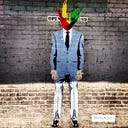Member-only story
Quotient Types: The AQ, EQ, IQ, OQ, UQ (and Sometimes YQ)
Reach for the stars
CNN ran a story honoring the anniversary of Notorious B.I.G.’s death. Of course, the comment-section quickly shot off on several tangents.
One comment mentioned an interesting term I’d never heard before — The AQ, or Adversity Quotient.

Biggie Small’s sizable AQ was being compared to the classic determinants of successful and superior accomplishment that everyone is familiar with — The IQ, Intelligence Quotient, and The EQ, Emotional Quotient.
The generally agreed-upon theory, as summarized by the commenter, is that a high IQ is worthless if you have a low EQ. In other words, a genius who can’t relate well to others can’t make the most of his intelligence.
On the other hand AQ, the “Adversity Quotient,” predicts “how well one withstands adversity and his ability to triumph over it.”
Dr. Paul Stoltz’ writes, “In fact, AQ is a better index in achieving success than IQ, education or even social skills (EQ).”
According to Stoltz, “AQ is the most scientifically robust and widely used method in the world for measuring and strengthening human resilience. Top leaders, industry-leading companies, and governments worldwide use AQ to enhance or transform characteristics such as performance, productivity, and innovation.”
Further, like IQ, AQ can be tested, with scores falling among three broad categories:
- Low AQ (0–59): Low levels of motivation, energy, performance, and persistence. Tendency to catastrophize events.
- Moderate AQ (95–134): Under-utilization of potential. Problems take a significant and unnecessary toll, making climbing difficult.
- High AQ (166–200): Maintains appropriate perspective on events and responses to them. Able to continue forward with upward progress despite significant adversity.
One estimate suggests that “worldwide IQ’s are improving on average by 3 points every decade.”
But with the milieu of challenges facing us in the 21st century, is AQ trending in the same direction?
